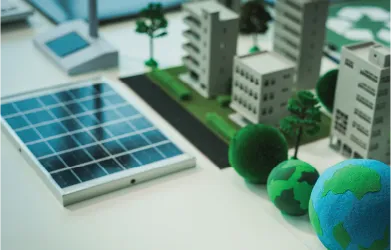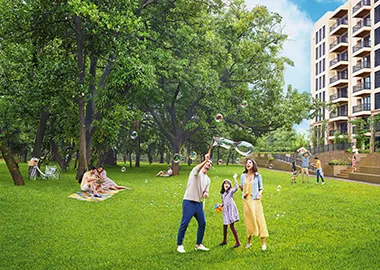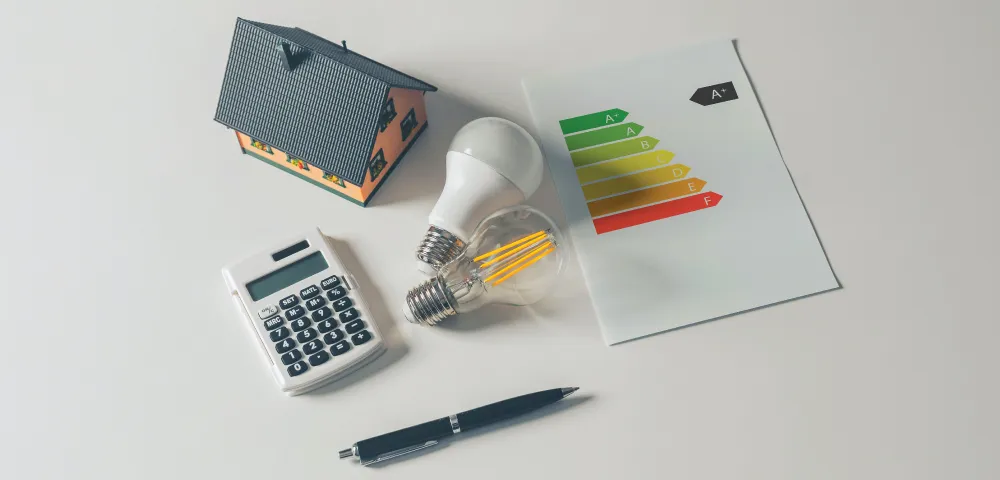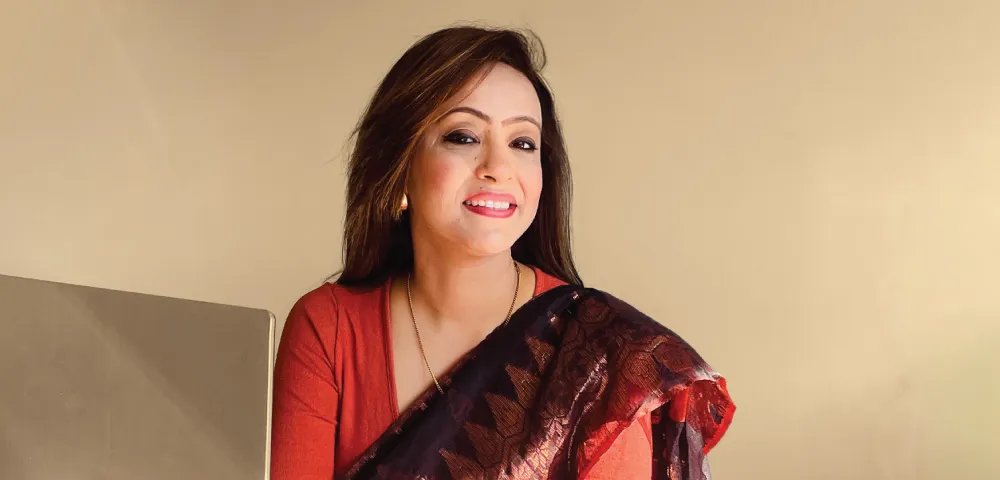Why Green Retrofitting Is More Than Just Compliance – It's a Strategic Move
By lodha
October 13, 2025
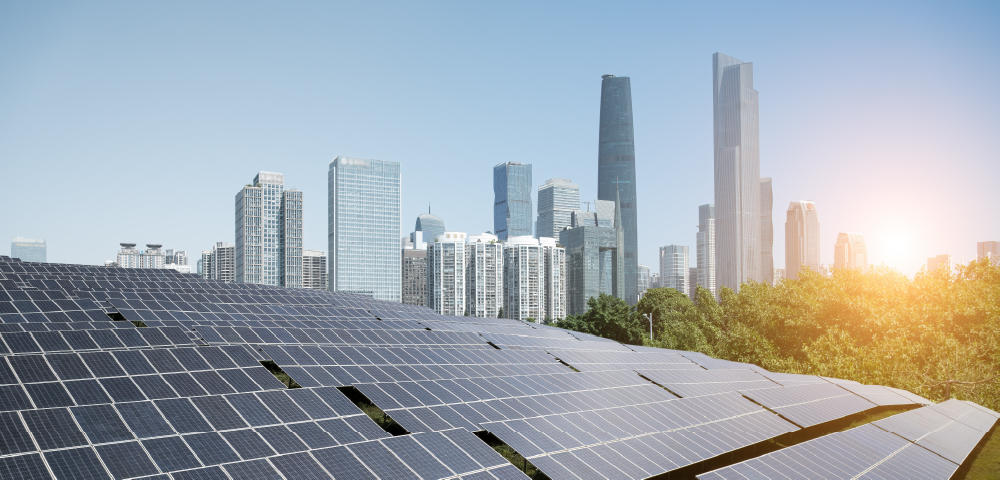
As the world increasingly prioritises sustainability, the real estate sector is stepping up to the challenge. Green retrofitting is no longer simply about meeting environmental regulations; it has become a savvy business strategy that offers both financial and operational benefits. This article explores why real estate investment companies and developers should embrace sustainable housing and eco-friendly houses to enhance their long-term profitability.
The Business Case for Retrofitting: It's Not Just About the Environment
While green retrofitting has traditionally been seen as a way to reduce environmental impacts, it is now clear that the financial returns are just as compelling. Studies show that buildings that undergo retrofitting can reduce energy consumption by up to 50%, leading to substantial cost savings in energy bills. With global energy prices rising, retrofitted buildings provide a long-term solution for minimising utility costs.
Additionally, eco-friendly houses and sustainable housing projects are becoming highly sought after by tenants and buyers alike. These homes offer greater energy efficiency, healthier indoor air quality, and lower utility bills. For real estate investment companies, retrofitting is a solid way to increase property value, attract tenants, and enhance rental yields.
Retrofitting as a Smart Business Strategy
Green retrofitting is not just an environmental decision; it’s a strategic move that makes great business sense. As demand for sustainable homes continues to grow, developers and real estate companies in India can use retrofitting to attract premium tenants and higher rents. In fact, retrofitted buildings can command up to 40-50% higher rents compared to traditional buildings, thanks to their energy-efficient features.
Moreover, buildings that incorporate sustainable housing features such as solar panels, energy-efficient insulation, and smart technology systems generally have lower maintenance costs. Studies have shown that LEED-certified buildings experience 20% lower maintenance costs than traditional buildings, allowing owners to increase their overall returns on investment.
The Next Frontier: Circularity in Retrofitting
As the global focus on sustainability continues to grow, circularity is becoming the next key frontier in green retrofitting. Circularity in construction involves reusing materials, reducing waste, and ensuring that a building can be deconstructed and repurposed at the end of its life. This approach not only reduces the environmental impact but also helps lower costs by reusing materials that would otherwise go to landfill.
For example, the use of recycled steel and reclaimed timber in retrofitting projects can significantly reduce the carbon footprint. In India, circular retrofits are increasingly being seen as an opportunity to create jobs while decreasing reliance on new resources. This makes it a win-win for both developers and the environment.
Financing the Retrofit Transformation
One of the main obstacles to green retrofitting is the initial investment required. However, as demand for eco-friendly houses grows, financing options are becoming more accessible. Green bonds, energy performance contracts, and sustainability-linked loans are now available to help fund these projects. In many cases, the financial return on investment from energy savings and increased property value far outweighs the upfront costs.
For real estate investment companies, investing in sustainable housing projects through green financing options is a smart move that can offer substantial long-term returns. The financial viability of green retrofitting is undeniable, especially when considering the increasing market demand for sustainable buildings.
Technology, Data, and Talent – Key Drivers of Green Retrofitting
In today’s digital age, technology plays a critical role in optimising the effectiveness of green retrofitting. Smart building technologies that monitor and control energy consumption, water usage, and heating/cooling systems are now standard in modern retrofitting projects. These technologies help ensure that buildings remain energy-efficient and continue to deliver cost savings over time.
Moreover, skilled professionals with expertise in sustainable design and energy management are vital to the success of retrofit projects. The talent pool available to developers and real estate companies in India continues to grow, ensuring that the retrofitting process is carried out efficiently and effectively.
Retrofitting as Part of a Brand and Cultural Strategy
Incorporating eco-friendly houses and sustainable homes into a real estate portfolio can also serve as a brand-building exercise. Today’s consumers, tenants, and investors are increasingly prioritising sustainability. By investing in green retrofitting, developers and real estate investment companies can position themselves as forward-thinking and socially responsible.
Green buildings appeal to tenants who are passionate about reducing their carbon footprint. They also align with corporate tenants that have sustainability goals. For developers, this translates into increased demand, reduced vacancy rates, and enhanced brand value.
The Future Is Green: Start Retrofitting Today
Green retrofitting is not just a passing trend; it’s a future-proof business strategy. As the demand for sustainable housing projects continues to rise, retrofitting existing buildings to be more energy-efficient will become an essential part of a developer’s long-term strategy. The financial, environmental, and brand-related benefits of retrofitting make it a smart move for those looking to stay ahead in an increasingly competitive market.
For developers looking to lead the charge in sustainability, Lodha Group, one of the top builders in India, offers a range of sustainable housing projects that prioritise eco-friendly design, energy efficiency, and environmental responsibility. Lodha’s commitment to sustainable homes ensures that your investment not only meets today’s needs but is also future-ready.
You may also like



 Enquire
Enquire
 Call
Call
 chat
chat
 Search
Search

